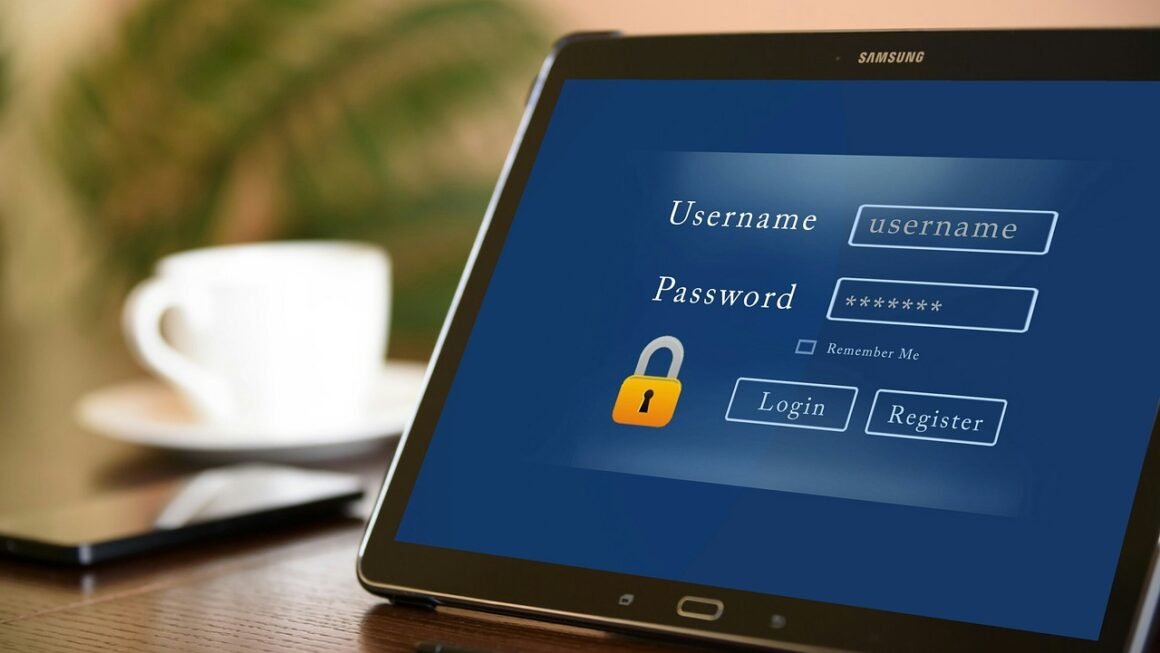Ethical hacking, also known as penetration testing or white-hat hacking, is a critical component of modern cybersecurity. It involves legally and ethically attempting to penetrate a computer system, network, or application to identify vulnerabilities and security weaknesses. This proactive approach allows organizations to address these issues before malicious actors can exploit them, safeguarding data, reputation, and financial stability. This blog post explores the intricacies of ethical hacking, covering its methodologies, benefits, essential skills, and ethical considerations.
What is Ethical Hacking?
Defining Ethical Hacking
Ethical hacking is the authorized and simulated attempt to break into a computer system. The key differentiator from malicious hacking is the permission granted by the system’s owner and the intent to improve security rather than cause harm. Ethical hackers use the same tools and techniques as malicious hackers, but their goal is to identify vulnerabilities and provide recommendations for remediation.
The Role of an Ethical Hacker
An ethical hacker acts as a cybersecurity consultant, employing their expertise to assess and fortify an organization’s defenses. Their primary responsibilities include:
- Scanning ports and identifying network vulnerabilities.
- Examining system configurations for weaknesses.
- Attempting to bypass security controls.
- Conducting social engineering attacks to test employee awareness.
- Preparing detailed reports outlining vulnerabilities and recommended solutions.
- Staying updated with the latest hacking techniques and security trends.
Legal Considerations
Ethical hacking operates within strict legal boundaries. To be considered ethical, any hacking activity must:
- Be authorized by the organization or individual owning the system.
- Stay within the agreed-upon scope of engagement.
- Maintain confidentiality regarding sensitive information discovered during the process.
- Report all findings to the client promptly.
- Not cause any intentional damage to systems or data.
Failure to adhere to these guidelines can result in severe legal consequences.
Why is Ethical Hacking Important?
Identifying Vulnerabilities
The most significant benefit of ethical hacking is the proactive identification of vulnerabilities. By simulating real-world attacks, ethical hackers can uncover weaknesses in systems, applications, and networks that might otherwise go unnoticed until exploited by malicious actors.
- Example: A penetration test might reveal that a web application is susceptible to SQL injection attacks, allowing an attacker to gain unauthorized access to the database.
Strengthening Security Posture
Ethical hacking allows organizations to strengthen their security posture and improve their resilience against cyberattacks. The insights gained from penetration testing can be used to:
- Implement stronger security controls.
- Patch vulnerabilities.
- Improve security awareness training for employees.
- Update security policies and procedures.
According to a report by Verizon, 85% of breaches involved a human element. Ethical hacking helps to pinpoint these human vulnerabilities through social engineering assessments, leading to more effective training programs.
Meeting Compliance Requirements
Many industries and regulations, such as HIPAA, PCI DSS, and GDPR, require organizations to conduct regular security assessments, including penetration testing. Ethical hacking helps organizations to meet these compliance requirements and avoid potential fines and penalties.
- Example: PCI DSS requires organizations handling credit card data to conduct annual penetration testing to ensure the security of their cardholder data environment.
Protecting Reputation
A successful cyberattack can significantly damage an organization’s reputation, leading to loss of customer trust and financial losses. Ethical hacking helps to prevent these attacks by identifying and addressing vulnerabilities before they can be exploited. A data breach can cost an average of $4.24 million according to IBM’s 2021 Cost of a Data Breach Report. Ethical hacking is a cost-effective way to mitigate this risk.
Methodologies and Tools Used in Ethical Hacking
Penetration Testing Methodologies
Ethical hacking follows a structured methodology to ensure a comprehensive and effective assessment. Common methodologies include:
- Information Gathering: Gathering information about the target system, network, or application, including its architecture, operating systems, and software versions.
- Scanning: Using tools to identify open ports, services, and potential vulnerabilities.
- Vulnerability Analysis: Analyzing the gathered information to identify and verify potential vulnerabilities.
- Exploitation: Attempting to exploit identified vulnerabilities to gain access to the system.
- Post-Exploitation: Maintaining access to the system and gathering further information.
- Reporting: Documenting the findings, including vulnerabilities, exploited weaknesses, and recommendations for remediation.
Common Ethical Hacking Tools
Ethical hackers use a variety of tools to perform their assessments. Some popular tools include:
- Nmap: A network scanner used to discover hosts and services on a network.
- Metasploit: A penetration testing framework used to develop and execute exploit code.
- Burp Suite: A web application security testing tool used to identify vulnerabilities in web applications.
- Wireshark: A network protocol analyzer used to capture and analyze network traffic.
- OWASP ZAP: A free, open-source web application security scanner.
Practical Example: Web Application Penetration Testing
A common ethical hacking task is to perform penetration testing on a web application. This involves:
Essential Skills for Ethical Hackers
Technical Skills
Ethical hackers require a strong foundation in technical skills, including:
- Networking: Understanding networking protocols, topologies, and security concepts.
- Operating Systems: Expertise in various operating systems, such as Windows, Linux, and macOS.
- Programming: Proficiency in programming languages such as Python, Java, and C++.
- Web Application Security: Knowledge of web application vulnerabilities and security best practices.
- Database Security: Understanding database security concepts and SQL injection techniques.
- Cryptography: Knowledge of encryption algorithms and cryptographic principles.
Soft Skills
In addition to technical skills, ethical hackers also need strong soft skills, including:
- Problem-Solving: The ability to analyze complex problems and develop creative solutions.
- Communication: Excellent written and verbal communication skills to effectively communicate findings and recommendations.
- Critical Thinking: The ability to think critically and identify potential vulnerabilities that others might miss.
- Ethics: A strong ethical compass and commitment to operating within legal and ethical boundaries.
- Teamwork: The ability to work effectively in a team environment.
Continuous Learning
The cybersecurity landscape is constantly evolving, so ethical hackers must commit to continuous learning. This includes:
- Staying updated with the latest hacking techniques and security trends.
- Attending conferences and workshops.
- Obtaining relevant certifications, such as Certified Ethical Hacker (CEH), Offensive Security Certified Professional (OSCP), and Certified Information Systems Security Professional (CISSP).
Ethical Considerations and Best Practices
Code of Ethics
Ethical hackers must adhere to a strict code of ethics to ensure that their activities are legal and ethical. This code typically includes:
- Obtaining informed consent before conducting any hacking activities.
- Protecting the confidentiality of sensitive information.
- Reporting all findings to the client promptly.
- Not causing any intentional damage to systems or data.
- Avoiding any conflicts of interest.
Scope of Engagement
The scope of engagement defines the boundaries of the ethical hacking assessment. It specifies the systems, networks, and applications that are in scope, as well as the types of attacks that are allowed. It’s crucial to define a clear scope of engagement to avoid any legal or ethical issues.
- Example: The scope of engagement might specify that the ethical hacker is only authorized to test the web application and not the underlying database server.
Reporting and Remediation
Ethical hackers must provide detailed reports outlining all discovered vulnerabilities, proof of concept exploits, and recommendations for remediation. The report should be clear, concise, and actionable, enabling the client to quickly address the identified issues.
The remediation process should involve patching vulnerabilities, implementing stronger security controls, and improving security awareness training.
Conclusion
Ethical hacking is an essential component of a robust cybersecurity strategy. By proactively identifying and addressing vulnerabilities, organizations can strengthen their security posture, protect their reputation, and meet compliance requirements. Ethical hackers play a critical role in this process, using their technical skills, ethical principles, and commitment to continuous learning to safeguard organizations from cyber threats. As cyberattacks become increasingly sophisticated, the demand for skilled ethical hackers will continue to grow, making it a rewarding and impactful career path.



